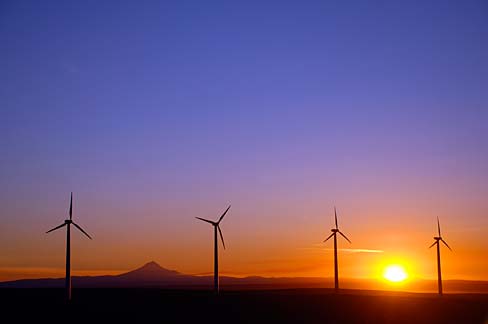The Bitter Irony, Texas Has Run Out Of Energy
Texas, the land of ten-gallon hats and wildcatters, has run out of Energy. The Lone Star State, which in the past has had such oil barons as Cullen, Murchison, and Hunt, has run dry; there's not enough Energy to run their air-conditioners.
Just as they did last year around this time, the Energy Reliability Council of Texas recommends that everyone turn up their thermostats and reduce their energy usage. Why? Because the Texas energy grid cannot supply the peak demand created by another hot Texas summer. Texas has run out of Energy.
It's not an accident, a quirk of nature, or a rare environmental circumstance; this is the direct result of an Energy "Policy" gone wrong. And Texas is far from alone in this misdirected "Policy," California has followed the same policy with equality deleterious results.
California, you may not know, has some of the most significant oil reserves in the world, but most (especially the off-shore resources) are untouchable. In my home state of Pennsylvania, we have the world's largest anthracite coal reserves (the cleanest burning of all coals).
Pennsylvania is called the Saudi Arabia of Coal. But much of Pennsylvania coal also is off-limits, part of the nation's vast supplies of Energy that, by law, cannot be used.
Yes, much of our oil and almost all of our coal is legally unusable because of various national Energy Policies gone wrong. These policies have been enacted over the past half-century. To appreciate just how fragile our energy systems have become, we must follow some history. It all began with the concept of an Energy Policy. What, you may ask, is a "Policy?" A "Policy" is nothing more than a law enacted by Congress that sets the direction for the country. In the case of Energy, Congress passed the first such law back in 1954, called the Depletion Allowance, which is currently institutionalized as: 26 U.S. Code § 613 - Percentage Depletion.
Depletion was Congress' first foray into managing the nation's Energy. This law provides companies that extract natural resources with a tax subsidy based on the theory that, eventually, they will run out of those natural resources and lose their livelihood. Has that ever actually happened? Have there been any oil companies, coal, or any other resource that has been completely depleted? Well, no. It's a tax break for an event that has never occurred. But that didn't stop the politicians. They could now claim that they were "managing" oil and helping the "American Citizens."
It is a tactic right out of the old Soviet Union's Playbook. Politicians come to the "aid" of the citizens, create an issue, then solve it and claim credit, the classic Hegelian Dialectic of Problem, Solution, Resolution (or, more correctly, thesis, antithesis, synthesis).
And it's been how this nation has been running its energy systems ever since. We've allowed the politicians in Washington to set the agenda for all our energy use. Is there something special about our political class that gives them unique insight into energy usage? Something that provides them with special knowledge in the technology and engineering involved in energy extraction? Absolutely not.
But they have a unique perspective on the vast amount of money and power involved in the Energy Industry. And an ability to wrap new laws in such market-ready terms as renewable, sustainable, and environmentally friendly.
In short, what we've done over the past 70 years is replace the system that best allocates resources and capital with a legal and political system. In America today, Energy is assigned by law, not by consumer demand. If Texas wants more Energy during this heat wave, they need to change the law. That's the bitter irony.
Making all this the more poignant, at one time, the United States had the most accurate and efficient method of allocating resources; it was called Capitalism. Entrepreneurs anxious to make a profit would meet the energy shortfall in a truly capitalist country. The free market, when unleashed, will provide all the energy Texas can use. Allow the wildcatter to drill; they will produce the Energy to meet the Texas demand.
Governments in a free market system would set and enforce the standards under which that Energy could be provided. Environmental, Safety, and Clear Air Standards are clearly principal areas that Governments must enforce. Standards, that by-and-large, already exist.
But Governments cross the line when they take over the market functions. Governments should not have the role of determining which type of Energy we should use. Worst still, Governments should refrain from subsidizing one type of Energy versus another, as they are doing today. And the reason for this is simple. When Governments step into the marketplace to subsidize a particular energy source, they destroy the price mechanism that makes Capitalism so effective. Today renewables, in particular, have become so heavily subsidized that we have yet to understand whether it is an effective and reliable source of Energy.
Several Grid Operators have pointed to Renewables as unreliable. We know that Wind Turbines only provide electricity when the wind blows (duh). But because much of the Wind Turbine Revenue comes through subsidies, we cannot measure their actual worth or contribution to the energy grid.
Do away with all energy subsidies, and we will finally get an accurate picture of our energy system. After what would undoubtedly be a difficult transition, we would see energy demand and supply come into balance. Shortages would vanish. That's how Capitalism works, and it's been working that way since Adam Smith wrote The Wealth of Nations 200 years ago.
Release the Free Market, and you'd solve our energy problem.
**
Follow me here on Sovren for more stories from the ValueSide.



